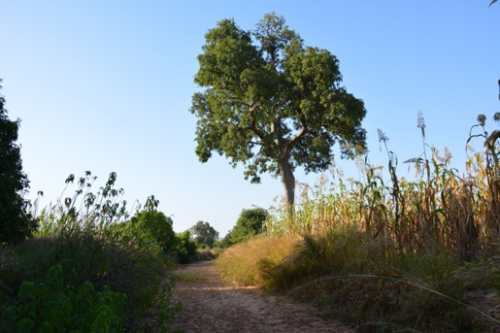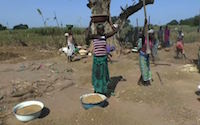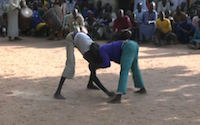Kyanga is spoken at the frontier of the Republic of Benin, the Federal Republic of Nigeria (Kebbi State) and the Republic of Niger, located in close proximity to the Niger River, while the Shanga area is 150 km downstream from that point (Map). Linguistically, the Nigerian middle-belt is a highly diversified linguistic contact zone. Languages from the three African macro-families, Afroasiatic, Nilo-Saharan and distant branches of Niger-Congo – Mande, Gur and Benue-Congo – are in contact with each other.
The Kyanga speaking area is in close relation to Busa (East Mande, Niger-Congo) and Songhay (Dendi, Nilo-Saharan). Sociolinguistic research during the first phase of this DoBeS project has shown that Kyanga is mostly vital in the more remote villages of Tungan Bage (Nigeria) and Tungan Noma (Benin), and to a lesser extend in Tondi and Kasati. While some Kyanga speakers are also present in neighbouring villages such as Sarhu, or even larger towns like Madékali and Malanville (both Benin), the language is at these places more a home language than the unmarked means of communication in the majority of sociolinguistic domains. It is reported that the language had been spoken in Niger but there is no evidence for that for today (Platiel 1982).
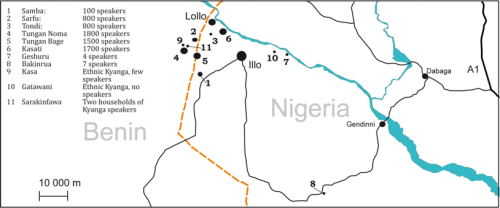
Map 1: Villages with Kyanga autochthonous speakers (data from Jones 2010)
The Shanga speakers live in the Shanga Local Government Area together with Hausa, Dukka, Fulani, Kambari and Gungawa, the latter term referring to a mixed group of island dwellers which includes Reshe, Lopa, Laru and Soroko. The remaining speech groups are located in four villages with some speakers scattered elsewhere (Jones 2010).
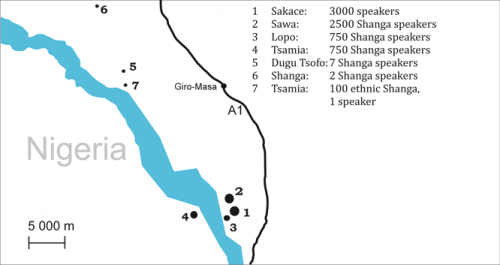
Map 2: Villages with Shanga autochthonous speakers (data from Jones 2010)
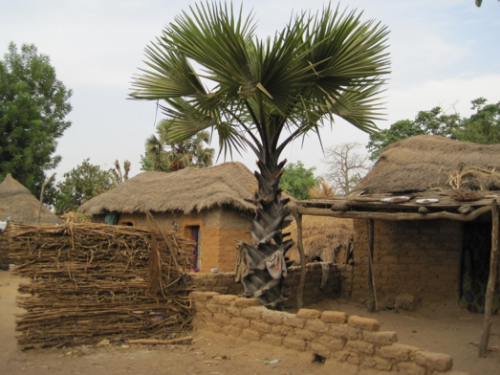
Compound at Tungan Bage
